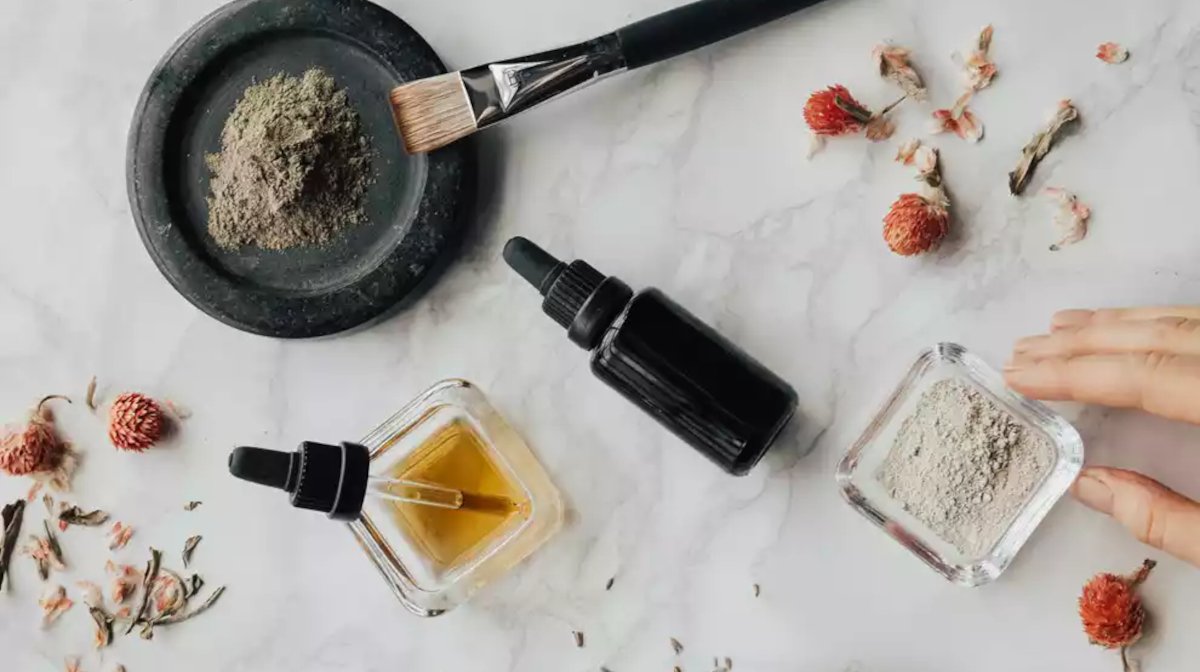Choosing the best skincare products can be tough. With so many tried-and-tested options available and brilliant brands emerging year after year, knowing which ingredients and formulas will work for you can be tricky. If you have sensitive skin or an allergy, the problem becomes even more difficult to avoid.
Well, we’re here for you, no matter what your skincare needs. In this guide, we’ll run through some of the biggest sensitive skin and skincare allergy questions, help you search for solutions, and recommend some of our favourite products to keep allergy-prone skin healthy.
Identifying sensitive or allergy-prone skinOne of the most important elements of skincare is being able to understand your unique needs. Every face is different, and whether you have dry, oily, or combination skin, you might suffer from allergies and sensitivities to some ingredients.
If you break out in an itchy or red rash after using a cosmetic, it’s a clear sign of an allergic reaction or irritation.
Unfortunately, symptoms aren’t always quite so easy to spot. Some allergies can lead to dryness, flakiness, bumps, and an uneven skin tone. Reactions like these are often dismissed because, for some people, they seem like an unavoidable problem. Before you start searching for more products to combat your skin issues, consider allergies. If you’re allergic to some skincare, the key will be removing or replacing steps from your routine.
The types of skin reactionThere are a few different ways to talk about skin allergies and reactions. For example, dermatitis is the term used to describe red, itchy, patchy rashes or skin irritations.
Contact dermatitis is the type of dermatitis caused by something that touches the skin. If you’re allergic to your haircare, deodorant, skincare, or makeup, you might break out in contact dermatitis of some kind.
Most cases of contact dermatitis are irritant contact dermatitis, which means that they’re caused by something you’ve touched but don’t involve the immune system. These reactions are only present on the skin.
Finally, allergic contact dermatitis is a true allergy to something. If you have allergic contact dermatitis and your skin comes into contact with a trigger, your reaction will usually be more severe and last for up to a couple of days.
What does a skincare allergy look like?If you’re suffering from contact dermatitis, your symptoms might include:
- Raised bumps
- Itchy skin
- Redness
- Small blisters
- Dryness
- Dehydration
None of these symptoms sound like things you want to deal with on your face, or anywhere else on your body for that matter. That’s why recognising the signs of a skincare allergy or intolerance can be so helpful. The sooner you spot the symptoms, the sooner you can get to the bottom of what’s causing them.
Why am I allergic to skincare and beauty products?Contact dermatitis is more likely to affect your face than on another part of your body because the skin there, particularly around your eyes, is thinner and more sensitive.
If you’re allergic or intolerant to some skincare, there isn’t a lot you can do. Thankfully, there are plenty more fish in the sea (in our case, products on the shelves), which means switching up your routine shouldn’t be too tricky.
Can I become allergic to products I’ve always used?Yes. Irritant contact dermatitis, the type that doesn’t affect the immune system, can develop over time. This is because, if you’re using a skincare or makeup product every day, your skin can become overexposed to it. Applying a substance to your skin every day can wear down its ideal state and cause a reaction over time.
That’s why it can be a good idea to change your skincare and makeup routine occasionally. If you use harsh products on your face, like a cleanser or exfoliator that leaves your skin feeling clean and tight, it can be a good idea to switch these products for gentler alternatives for a while. You can always go back to them, but giving your skin a break might just help you avoid a reaction.
Which beauty products might I be allergic to?Everyone’s skin is different, which means it’s impossible for us to tell you which ingredients and products you’re allergic to. However, some ingredients are more likely to cause a reaction than others.
A lot of people are allergic to fragrances, which can be found in skincare and haircare products. There are plenty of fragrance-free options available to combat this problem, so give them a go if you think you have an intolerance. Fragrance-free products are usually best for sensitive skin, whether an allergy is present or not.
Some preservatives can also cause contact dermatitis, though unfortunately they’re needed in most skincare and beauty products.
Finally, colourants. People who are allergic to colourants in food are also likely to be allergic to them in cosmetics.
Can I be allergic to natural beauty products?Yes. Natural ingredients can cause contact dermatitis just like artificial ones. Just like we can be allergic to natural things like pollen, nuts, and fruits, we can be allergic to natural ingredients in skincare and cosmetics.
Essential oils are frequent offenders, with many people experiencing skin reactions to products which contain them, especially in high concentrations.
So, if you’re having a reaction to a cosmetic product, don’t dismiss your natural or organic products straight away!
Figuring out which products you’re allergic toThis can be tricky. If you’ve noticed an immediate reaction to a new product, you’ll be able to remove it from your routine without any difficulty. However, if you’ve started experiencing mild symptoms and you aren’t using any new products, you’ll need to put in some work to figure out what’s causing dermatitis.
Try removing products one at a time to see if symptoms improve. It can take a couple of weeks to see a difference, so you’ll need to be patient to get to the bottom of it.
If your symptoms are severe or won’t go away, it can be a good idea to visit a dermatologist. A dermatologist can perform a patch test to tell you which ingredients you’re allergic to.
Caring for skin after a reactionIf you do have a reaction, you’ll need to care for your skin properly to help it heal as quickly as possible. Most contact dermatitis will go away on its own, as long as you stop using the product that’s caused it, but there are some things you can do to help the process along.
- Treat the affected area gently
- Don’t scrub or scratch
- No perfumed soaps or lotions
- Apply a thin layer of Vaseline or soothing ointment
With the right treatment and time to recover, your skin should go back to its normal healthy state in no time.
The best hypoallergenic makeup and skincareIf you’re looking for new products to avoid contact dermatitis, these gentle and hypoallergenic options are a good place to start.
Gentle soaps and cleansers- Guinot Demaquillant Hydra Sensitive Gentle Cleanser 200ml
- Dermalogica UltraCalming Cleanser 500ml
- Yardley Shea Buttermilk for Sensitive Skin Boxed Soap 120g
- Dermalogica Gentle Cream Exfoliant 75ml
- Gatineau Gentle Silk Cleanser Sensitive Skin 200ml
- Dove Baby Head to Toe Sensitive Moisture Wash 50ml
- Guinot Serum Hydra Sensitive Face Serum 30ml
- Dermalogica UltraCalming Serum Concentrate 40ml
- Garnier Body Sensitive Soothing Restorative Balm 200ml
- Burt's Bees Aloe and Buttermilk Sensitive Body Lotion
- Burt's Bees Sensitive Skin Day Cream 50g







